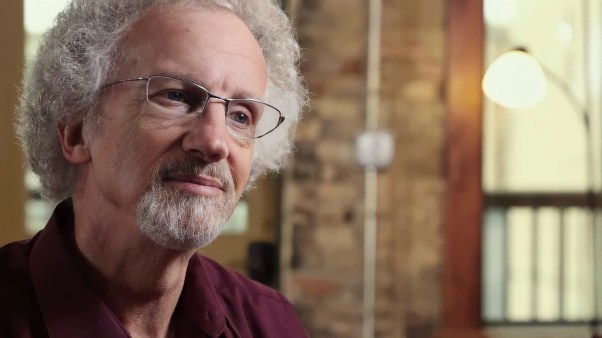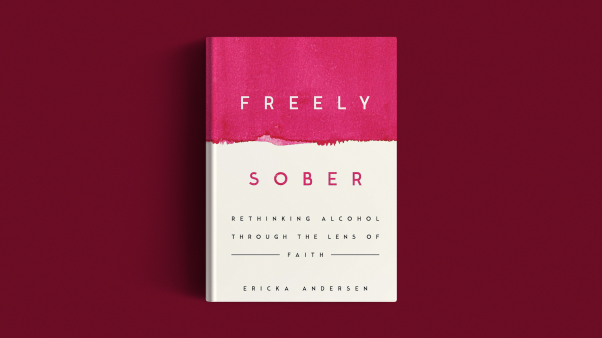College comes with many pressures: pressure to perform. Pressure to fit in. Pressure to find your people, to graduate on time, to choose the right major and career (and sometimes spouse).
But beneath all these pressures is what I believe to be the purpose of higher education: to grow in wisdom, knowledge, and skills so you can glorify God, love your neighbor, and delight in God’s creation. That purpose is hard to remember with these pressures tugging at your sleeve—telling you to worry about grades or about why someone hasn’t texted you back already—and your task as a student is to discipline yourself to remember it anyway. Set aside your distractions and focus on the calling God has laid before you today.
So how do you develop this discipline? What can you do practically as you go or go back to college this fall? My experience teaching college students for 20 years has taught me the key is humility.
All wisdom begins with humility. We see this in Scripture: “The fear of the Lord is the beginning of wisdom” (Prov. 9:10), and fearing God requires a posture of humility. Learning wisdom—or knowledge, skills, or anything else—requires it too. You must open yourself up, become vulnerable to the opportunity to grow. This means admitting ignorance, admitting that when you enter a classroom, however confident you are in the subject, you have something to learn.
Allow your professors to guide your journey toward wisdom in their subjects. Trust them in humility. Trust that their years of study and discipline have made them experts in their fields. It’s not that they aren’t human and capable of mistakes. They are. But trust that they have something precious to share with you.
When students become prideful, they become unteachable. There is no wisdom a teacher can impart to a prideful student, because a prideful student sits cross-armed and confident. A wall has gone up.
I understand that sometimes students have to take classes they believe they should be able to skip. This is frustrating, but each class is nevertheless an opportunity to grow in wisdom—even if that growth is less in factual knowledge than in attention, patience, and humility. I can tell you from experience that these virtues will serve you well in life and are in short supply in the contemporary world.
I also understand that some students are skeptical of trusting professors because there are so many stories of professors who take advantage of their positions to promote ideological views irrelevant to their subjects. I understand this concern: I once had a professor at a secular university who taught grammar by criticizing President George W. Bush, the Iraq War, and creation science. But despite his ideological bent, I did learn grammar from him—and discerningly ignored the ideology.
All this talk about students being humble may sound a bit patronizing. What about professors? Is it only students who have to be humble?
You’ll be glad to know that we professors require humility just as much as students do. We need it if we’re to continue to grow in wisdom and be effective teachers. In humility, we professors must open ourselves up to the advice and admonition of our colleagues, our administrators, and other scholars in our fields. And in humility, we must read books that challenge us and our assumptions. Everyone who wants to grow in wisdom remains humble. Any professor who is not humble inevitably becomes a fool.
But what about those pesky pressures? Let’s say you get to college with your heart set on walking into class with humility and an openness to learn for the glory of God. Won’t you still be distracted by grades and that person who left your text message on “read” for an hour?
Maybe, but not necessarily. If you truly understand education as pursuit of wisdom, you’ll be better able to accept poor grades or high grades for what they are—and move on.
Grades aren’t measures of your personhood. They don’t prove you are a failure (or a success). They may show you need to study more for a particular class. And if so, fine. You can accept that with humility. Or if you receive high grades, also fine. In humility, you can accept them without inflating your pride.
Other pressures can’t be so directly addressed by humility (though even there I think a humble heart is part of the solution). Pressures to fit in, find the right career path, and snag a spouse can be overwhelming.
My advice is this: Wherever you are and whatever kind of school you attend, find a local congregation and get plugged in—immediately. I know it can be difficult being the one young adult in a room full of parents or older adults. I know it can be hard to coordinate rides on Sunday morning. But you must do it.
Take the initiative. Show up on Sundays. Join a small group or a college ministry. Find some kind of Christian support.
The college years can be very challenging for young people. This is a period of enormous change, of scrutinizing your childhood, of making major decisions with long-term ramifications—all while you are taking tests. You need a Christian community to ground you. And I suppose that does take a lot of humility to accept and practice. It certainly takes vulnerability and courage.
If you are attending a Christian college or university, then I highly recommend using your professors’ office hours (in addition to your church or ministry community) whenever you have questions about faith, life, and challenges in class.
Giving you this support is exactly why your professors are there. Indeed, one of the great benefits of teaching at a Christian liberal arts university is that I have time to meet with students and mentor them. I always try to approach these meetings with humility myself, knowing it is an honor to have someone come seeking counsel. Your visits are never an imposition.
And even if you don’t attend a Christian school, having the humility and courage to visit your professor during office hours will only benefit you. Being willing to raise questions about a course and its material is a strong indicator of academic success.
In this school year—and the next, and all your years after graduation too—the decision to pursue wisdom, knowledge, and skill is up to you. We like to hedge and say some people are just born intelligent, but Proverbs makes clear that wisdom is open to anyone who truly desires it. Whatever our innate abilities, we can all seek a posture of humility before God.
The pressures won’t go away. Various distractions will continue to come. But your duty is to glorify God, love your neighbor, and delight in God’s creation by submitting yourself to the work of questing for wisdom, knowledge, and skill. With a community of believers to support you, professors to encourage you, and a God who loves you and wants you to know him, you can learn well.
O. Alan Noble is associate professor of English at Oklahoma Baptist University and author of four books: To Live Well: Practical Wisdom for Moving Through Chaotic Times, On Getting Out of Bed, You Are Not Your Own, and Disruptive Witness.




















